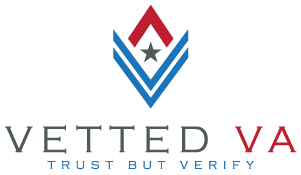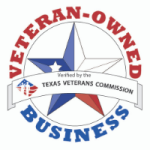The COVID-19 coronavirus pandemic hit everyone hard. Millions of lives disrupted.
The economy shuddered to a slow roll in a very short period of time, and millions of families are experiencing financial hardship.
This hardship is amplified if you are a homeowner with a mortgage payment.
On March 27th, 2020 the Federal CARES Act was passed to offer a clear path to payment relief options for homeowners impacted by the near Nationwide shutdown.
If you have a VA home loan, your loan is Federally backed and covered under the CARES Act.
Helping Veterans Impacted by COVID-19
The CARES Act clearly defines the path to payment relief through forbearance. What it does not tell you is what your options are for buying or refinancing if you went into forbearance because of COVID-19.
This article explores recent guidance released by the Veterans Administration that clears up many questions about access to a Veteran’s home loan entitlement after being in a COVID-19 forbearance.
I have to say that the Veterans Administration did a really good job here providing comprehensive guidance. The VA was, once again, very generous in its efforts to encourage and protect homeownership in the Veteran community.
Homeowner Protection Under CARES Act & COVID-19
The Federal CARES Act only covers homeowners whose loans are Federally backed. Under the umbrella definition of Federally backed is FHFA (Fannie Mae & Freddie Mac), FHA, VA & USDA.
FHFA has been pretty clear about their 40% of the market by providing a clear pathway to forbearance and then out of forbearance into deferment or repayment, whichever is best for the homeowner.
On July 3oth 2020, the VA came out with very specific guidance regarding using your home loan entitlement even though you recently experienced a COVID-19 related financial hardship.
The following is a translation of the official VA guidance. I tried to remove all of the “lender-speak” so it’s easier to understand your rights in plain language.
Our goal with this article is to empower Veterans so that misinformed or inexperienced loan officers are not preventing you from using your VA home loan benefit during these unprecedented times.
If you would like to review the original source document, you can view Circular 26-20-25 here.
CARES Act Forbearance Impact on VA Purchase & Refinance Loans During COVID-19
This guidance specifically addresses the challenges that otherwise eligible Veterans may experience if you have experienced a temporary financial hardship due to COVID-19, which ultimately resulted in mortgage forbearance.
Homeowners with a VA home loan are covered under the CARES Act.
This law specifically grants mortgage forbearance as a safety net in the event that you either “directly or indirectly” experience financial hardship from the COVID-19 emergency. Requesting temporary mortgage payment relief under the CARES Act is incredibly easy.
Excerpt from the CARES Act:
See Public Law 116-136. Under section 4022 of the CARES Act, a borrower with a “Federally backed mortgage loan” who is experiencing a financial hardship due, directly or indirectly, to the COVID-19 emergency may request a forbearance on such loan.
A borrower can obtain forbearance by:
(i) submitting a request to the borrower’s servicer and
(ii) affirming that the borrower is experiencing financial hardship during the COVID-19 emergency. The forbearance must be granted for up to 180 days and must be extended for an additional period of up to 180 days at the request of the borrower.
The forbearance must be granted for up to 180 days and must be extended for an additional period of up to 180 days at the request of the borrower.
Forbearance must be offered upon the borrower’s request, regardless of delinquency status.
Effective Dates
- The guidance in this Circular is effective immediately and applied to any loan closed on or the day after this Circular is signed.
- The policies outlined in this Circular will remain in place until further notice or the Circular is rescinded.
- This Circular is rescinded on July 1, 2021.
COVID-19 Related Underwriting Flexibilities
Lenders should continue to follow all applicable VA policies using good judgment and flexibility in originating VA-guaranteed loans for Veterans who invoke CARES Act forbearances.
If you have experienced financial hardship caused by COVID-19, VA is temporarily waiving certain regulations and policy requirements to help Veterans and the private sector to secure home loans.
The flexibility that VA underwriters have now to act in the best interest of the Veteran is one of the most powerful features of the VA Veteran home loan.
Unfortunately, this is also the reason why so many loan officers and lenders get it wrong.
In an effort to help as many Veterans as possible to take advantage of their home loan benefit, VA approved underwriters are encouraged to use common sense and their own discretion when making decisions to approve or deny a Veteran’s application.
But not all loan officers, underwriters, or lenders are created equal. Not even close.
For this reason, we encourage Veterans to ONLY use professional advocacy groups like VettedVA to connect with experienced, passionate VA mortgage experts.
A Veteran’s options are literally limited to the experience and willingness of the loan officer and underwriter to fight for your loan approval if you are unable to breeze through with automated underwriting.
VA Purchase and Cash-Out Refinance Flexibilities
Veterans who are affected by COVID-19 should still be afforded the opportunity to utilize their earned VA home loan benefits.
For this reason, the VA is temporarily relaxing certain credit underwriting policies for VA-guaranteed purchase and cash-out refinance loans.
While lenders must continue to follow VA’s underwriting standards generally, lenders should not use a CARES Act forbearance as a reason to deny a Veteran a VA-guaranteed loan.
If you are a Veteran that experienced a COVID-19 related hardship, you must provide reasons for the forbearance and document that this temporary hardship has been resolved and you are able to make your normal monthly payment moving forward.
VA will not consider a Veteran as an unsatisfactory credit risk, based solely upon the fact that the Veteran received some type of credit forbearance or experienced some type of deferred payment during the COVID-19 national emergency.
VA reminds lenders instead to continue to review and evaluate all applicable credit qualifying information, like residual income, debt-to-income ratios, credit, and assets.
Although deferred payments may not be considered for credit risk purposes, your lender will include the monthly obligation if the debt remains active after closing the new loan.
This means that if you have deferred auto payments, or credit card payments on your credit report at the time of application, while you will not be penalized for receiving payment relief, the regular payment cannot be ignored when calculating your debt to income ratio.
Expert Answers
Please consider joining our private Vetted VA Facebook page (answer all the questions!) if you find this kind of information helpful. Feel free to share with anyone you know that may also benefit from staying up to date with mortgage and real estate news for Veterans.





